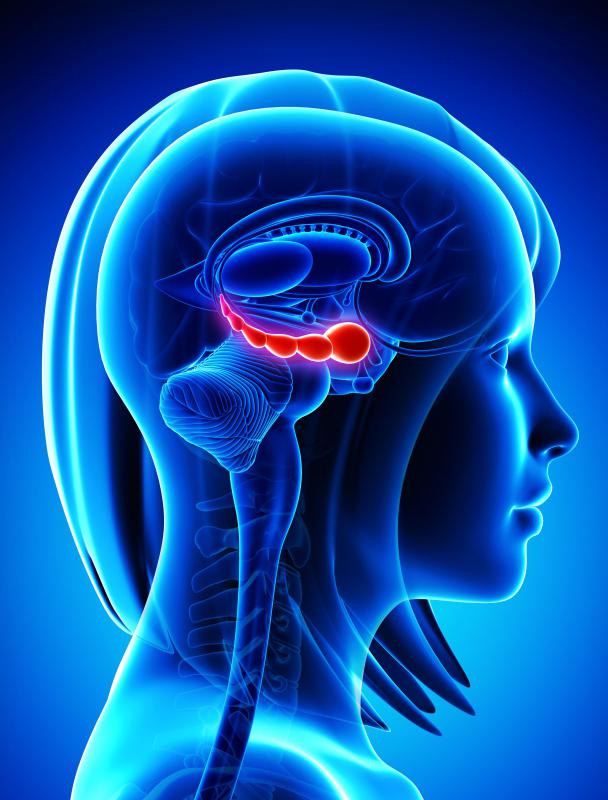At WiseGEEK, we're committed to delivering accurate, trustworthy information. Our expert-authored content is rigorously fact-checked and sourced from credible authorities. Discover how we uphold the highest standards in providing you with reliable knowledge.
What is the Alveus?
The alveus is a part of the limbic system of the brain. This thin, fibrous structure is located around the outside of the lower portion of the hippocampus and is involved in transmitting information through the hippocampus into the thalamus.
The hippocampus is a structure in the brain that wraps around the thalamus. The base of the hippocampus is the thickest section and the alveus is attached to this. The alveus wraps around the base of the hippocampus, starting from about the midpoint, and follows the curve in the hippocampus as it wraps around from the base to the top of the thalamus.

As the hippocampus winds up along the back of the thalamus, it thins into a tail-like structure called the subiculum. The alveus continues along this part of the hippocampus as well. Along the top of the thalamus, the subiculum continues to thin into the fimbria, eventually narrowing into the fornix on its way to its connection point at the front of the thalamus. The fibers in the alveus join with those in the fimbria and at this point it becomes indistinguishable from this section of the hippocampus.

Comprised of nerve cells, the alveus is involved in the transmission of information through the hippocampus into the thalamus. The nerve cells in the alveus are coated with a thick meyelin sheath, which acts as an electrical insulator. Signals that travel along nerve cells, in the form of electrical energy, are able to reach their destination more quickly and with much less degradation of information under the protection of the meyelin sheath.

The structures of the limbic system, of which the hippocampus and alveus are a part, are located towards the center of the brains of mammals, but other animals, such as fish and reptiles, do not have these brain structures. The limbic system is divided down the center of the brain into right and left hemispheres, which means that most structures in it have two components in mirror image of one another. There are right and left components to both the alveus and the hippocampus, which are connected only above the thalamus.

The hippocampus is involved in long-term memory and spatial awareness. Damage to this section can cause many problems, including Alzheimer's disease, which often produces symptoms of disorientation and loss of long-term memory. Extensive damage to the hippocampus can make it impossible for a person to form new memories.
AS FEATURED ON:
AS FEATURED ON:














Discuss this Article
Post your comments